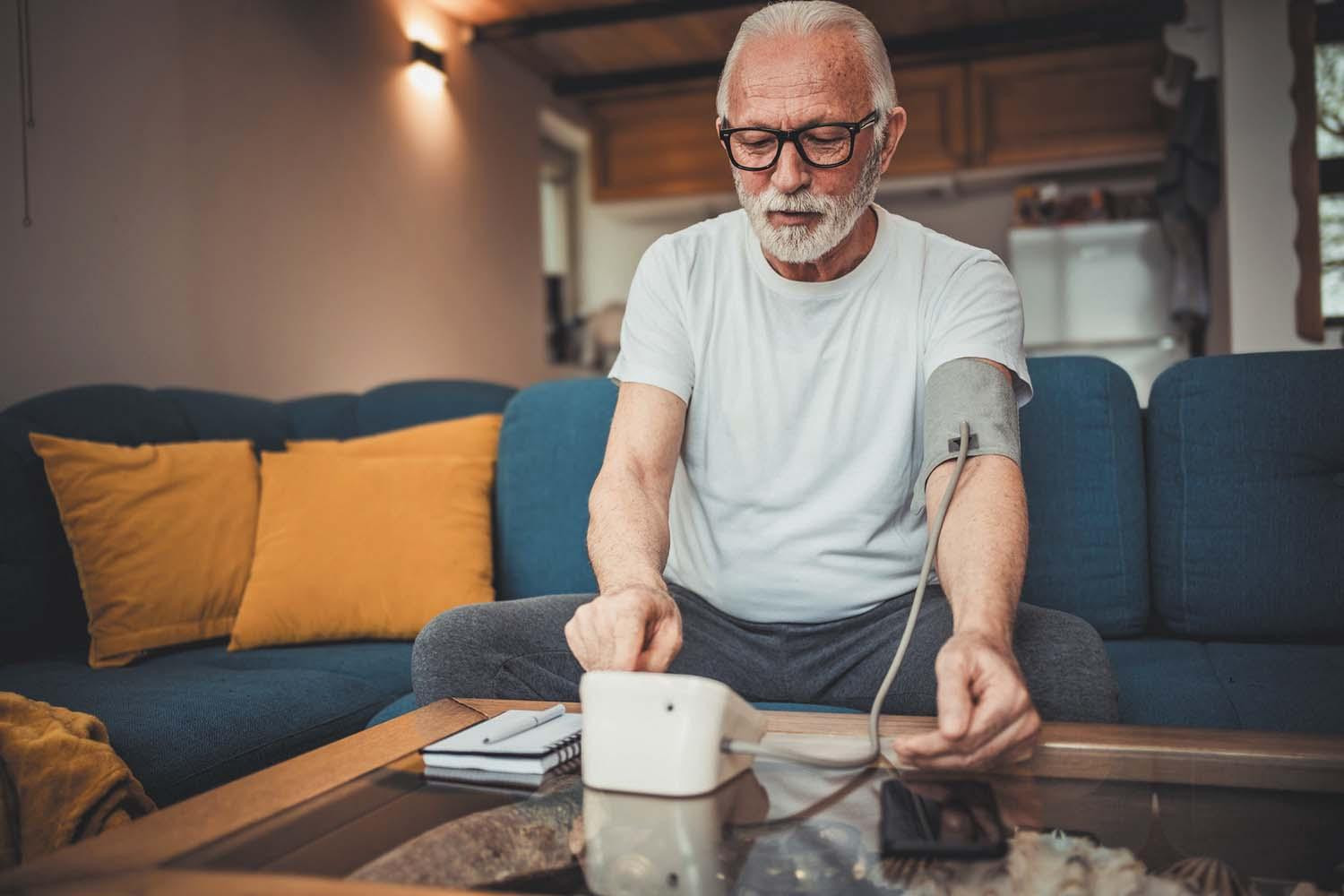
Trying to lose weight? Be careful not to lose muscle

Is your skin problem actually an autoimmune condition?

People with diabetes face higher risk of hearing loss

Antibiotic-free fixes for recurrent UTIs

Musculoskeletal syndrome of menopause: When menopause makes you ache all over

When can older women stop getting mammograms?

To lose weight, especially harmful belly fat, combine diet and exercise

Can men hold off on treating recurring prostate cancer?

The 7 types of rest and why we need them all

What are the early warning signs of cervical cancer?
Blood Pressure Archive
Articles
Take back your blood pressure control!
When blood pressure remains high despite treatment, making certain lifestyle changes can help. Examples include reducing dietary sodium and increasing dietary potassium, losing weight, limiting alcohol intake to no more than one drink per day, exercising (doing aerobics and strength training), using tools that improve medication adherence (such as an automatic pill dispenser, a medication diary, a smartphone alarm, or a reminder app), quitting smoking, getting more sleep, managing stress, and reducing caffeine intake.
Cushing's: A master of disguise
Cushing's is marked by elevated blood levels of the hormone cortisol. Far more common in women, the condition is categorized as a disease or syndrome based on what factors trigger it, which can include using corticosteroids or having a tumor on the brain's pituitary gland or elsewhere. Symptoms include a swollen face, excess belly weight, fatigue, a fatty hump between the shoulders, stretch marks, easy bruising, and slow wound healing. Cushing's can also lead to health problems such as cardiovascular disease, bone loss, and diabetes.
Are salt substitutes a smart choice?
Substituting potassium-containing salt substitutes for regular salt can help lower blood pressure as well as the risk of stroke. But people should also check the sodium content in foods and eat more potassium-rich produce.
Don't overlook blood pressure control when you have glaucoma
Blood pressure problems might contribute to glaucoma, a condition that damages the optic nerves and causes vision loss. If blood pressure is too low, for example, blood flow to the optic nerves might decrease. That could deprive the optic nerves of oxygen and nutrients, resulting in nerve damage. High blood pressure might also reduce blood flow to the optic nerves, by damaging the blood vessels that supply the nerves. If glaucoma gets worse despite treatment, blood pressure should be considered as a factor.
Treating high blood pressure may help lower risk of cognitive decline
People who aggressively lower their high blood pressure not only help their heart health, but also may protect their brains from cognitive decline in the process, according to a 2025 study.
Telehealth may help maintain healthy blood pressure
Telehealth visits combined with home monitoring may be an effective way to help people reach and maintain their blood pressure goals, according to a 2025 study.
Intensive blood pressure control may lower risk of cognitive problems
Intensive blood pressure control that lowers systolic blood pressure (the first number in a reading) below 120 points may lower the risk of cognitive impairment or probable dementia.
Intensive lowering of blood pressure may protect people with type 2 diabetes from heart disease
People with type 2 diabetes may have greater protection from cardiovascular problems if they keep their systolic blood pressure (the first number in a reading) to 120 mm Hg or lower, according to a 2024 study.
Even small amounts of extra exercise could lower blood pressure
A 2024 study suggested that even five minutes of additional vigorous daily exercise could lower blood pressure.

Trying to lose weight? Be careful not to lose muscle

Is your skin problem actually an autoimmune condition?

People with diabetes face higher risk of hearing loss

Antibiotic-free fixes for recurrent UTIs

Musculoskeletal syndrome of menopause: When menopause makes you ache all over

When can older women stop getting mammograms?

To lose weight, especially harmful belly fat, combine diet and exercise

Can men hold off on treating recurring prostate cancer?

The 7 types of rest and why we need them all

What are the early warning signs of cervical cancer?
Free Healthbeat Signup
Get the latest in health news delivered to your inbox!
Sign Up











